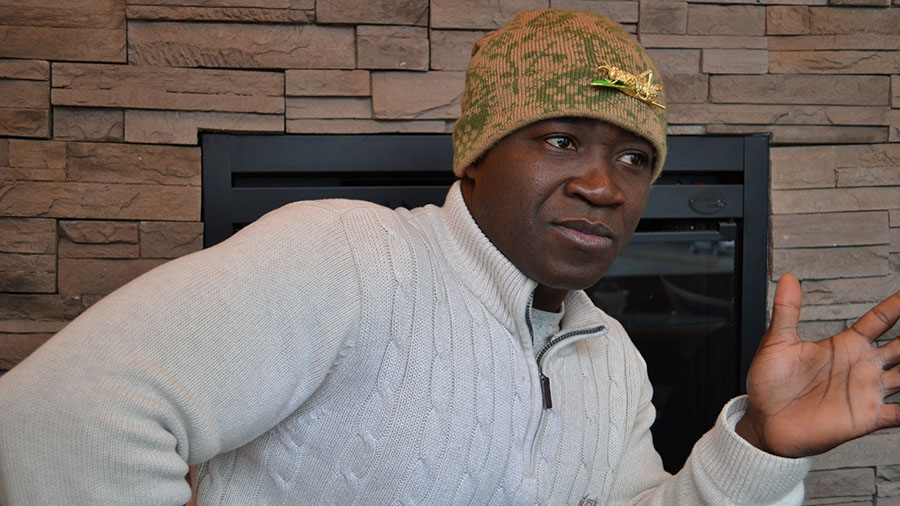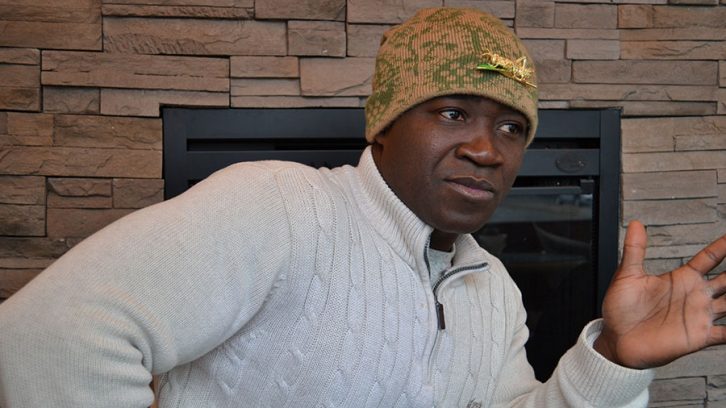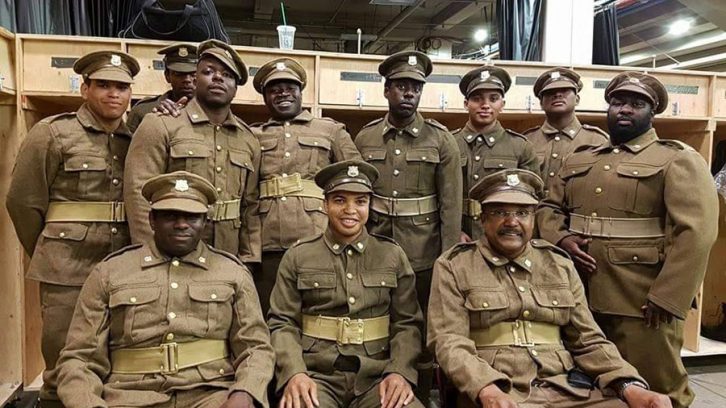True Life
Shepherd to Scotian: a Canadian success story

caption
Amoateng sporting a golden brooch of his namesake - "grasshopper"
caption
Amoateng sporting the golden brooch of his namesake – “Grasshopper”Kwaku Amoateng is not one for social convention. Perched precariously on his camouflage toque is large gold brooch of a grasshopper — a homage to his nickname in the Canadian Forces.
“They are like a family to me,” he says. “I would do anything for my team.”
Smiling and speaking in a softly accented baritone, he speaks of his childhood in Africa with a wistful look on his face.
Amoateng grew up in the northern village of Bimbilla, in the West African nation of Ghana. He worked as a shepherd whenever he was not in school. He still remembers seeing other children sitting on the road, fighting off open sores and skin parasites.
“I would be walking to school and see kids that I knew sitting on the road trying to pick worms —guinea worms — out of their skin because they drank bad water,” he says. “I grew up watching that, believing that was normal.”
The first times Amoateng was exposed to life outside of Africa came from an unusual source.
“I can remember foreigners coming to our village, and setting up a gas powered portable theatre (projector) and they would show us action movies, like Chuck Norris and G.I. Joe,” Amoateng chuckles.
Those movies stayed with Amoateng and inspired him to join the military. Those aspirations remained with him long after his parents moved from Ghana to Toronto, Ont. He eventually joined them in 1994. He enlisted in the Canadian Forces in 2009 at 27 years old and now works as a fireman at Halifax’s air force base.
“I always wanted to be a hero, I wanted to help people, I wanted to be there in places like Haiti that needed disaster relief,” he says. “And once I joined (the Forces), I felt like I had reached a really important goal.”
Amoateng is one of the few men of colour in his firefighting unit. A Statistics Canada report from 2008 cited that only six per cent of Canadian Forces were members of a visible minority, but Amoateng insists that his skin colour does not separate him from his peers.
“We’re part of a new generation (on the base); I am proud to say we all work as a team,” he says. “I made friends in basic training that are part of the LGBTQ community, and I like to say ‘I am proud that they are friends with me.’ I’ve never experienced being treated differently (in the Forces) because I’m Ghanaian.”

caption
Amoateng and other Canadian Forces members (past and present) commemorate the 100 year anniversary of the No. 2 Construction Battalion from WWII.The history of non-white soldiers in Canada’s military is not widely known, but Amoateng was proud to take part in a special ceremony this past year.
“This past year was the 100 year commemoration of the all-black battalion in the First World War, and we got to meet international crews of firefighters,” he says. “I met my first black diver, and it was such a cool moment for me because I had never heard of one before.”
The segregated unit, under the command of a white man, was not allowed to participate in combat. The company was named “No. 2 Construction Battalion,” based out of Pictou, N.S. in 1916. It was responsible for clearing the road ways of mines for advancing forces and for facilitating the wounded away from the front lines in Europe.
Amoateng’s success in the Forces runs in the family, with one brother serving in the RCMP in British Columbia, and another working towards becoming an aircraft mechanic with the Air Force in Ontario.
Although Amoateng has not been deployed overseas, he is not scared of the possibility.
“I want to help,” he says. “That is why I joined (the Forces) and if that means going to a war zone, I am ready to do my part.”

